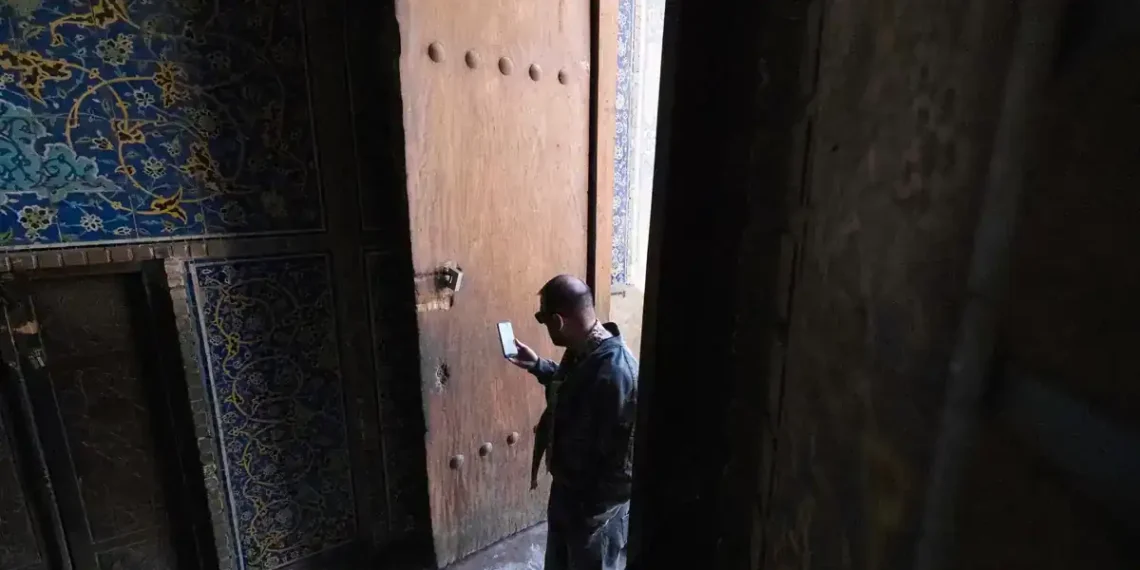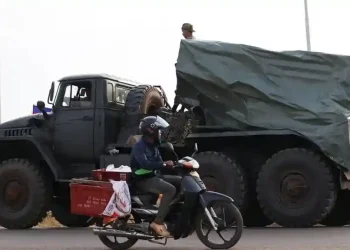Iran’s Internet Blackout Puts Civilians at Greater Risk Amid Intensifying Conflict with Israel
As missiles fall and tensions soar between Israel and Iran, another silent threat is spreading across Iran—an internet blackout that’s cutting millions off from the outside world, just when access to information could mean the difference between life and death.
On June 13, just hours after Israeli airstrikes hit targets in Iran, internet connectivity inside the country suddenly plummeted. Authorities blamed “special conditions,” and by June 17, access dropped again—this time by a staggering 90%, according to internet analyst Doug Madory at Kentik. “Things went into overdrive,” said a researcher with Project Ainita, noting even domestic news websites became inaccessible. It’s the second national blackout in just two days.
For many Iranians, the blackout isn’t just an inconvenience—it’s dangerous. The disruption is keeping people from contacting loved ones, checking for safety alerts, and even finding out which parts of the country are under threat. In Tehran, a city of nearly 10 million now bracing for potential escalation, the information freeze is making a bad situation even worse.
“This extensive censorship and internet disruption primarily serve the regime’s goal of maintaining control,” said Mahsa Alimardani, a digital rights analyst and associate director at Witness, a nonprofit focused on human rights. “These internet blocks are jeopardizing people’s safety—especially in Tehran.”
Alimardani noted that mobile data is largely unreliable and even home Wi-Fi has become unstable. VPNs, which many Iranians rely on to bypass censorship, have also stopped working. Some people have found temporary access only after traveling hundreds of kilometers away from the capital.
The Regime’s Long Game: Control Through Connectivity
This isn’t new for Iran. The regime has spent years building an infrastructure to monitor, censor, and control the internet. In 2019, during nationwide protests, the government pulled the plug entirely. In 2022, following the death of 22-year-old Mahsa Amini in police custody, access to WhatsApp and Instagram was severed.
But this latest blackout is happening as the country comes under fire from Israeli forces—and as threats mount that more strikes may follow. President Donald Trump has hinted at potential U.S. involvement in targeting Iran’s nuclear sites, escalating both the real-world and digital stakes.
Iran’s Ministry of Communications claims the restrictions are a precaution against cyberattacks, and state media say they’re meant to prevent “enemy abuse.” But digital rights experts say the real goal appears to be domestic control. “Free and open access to media would undermine the regime’s narrative of strength and victory over Israel,” Alimardani explained. “It could even provoke internal unrest.”
Forced Into Domestic Apps—With Questionable Safety
In place of open internet access, Iranians are being steered toward government-approved alternatives hosted on the National Information Network (NIN)—a state-controlled intranet. These platforms often lack strong privacy protections. One such app, Bale, is reportedly gaining traction simply because it still works during the shutdown. But security experts warn that these apps could be used to monitor users more closely.
“In a climate of fear, where people are simply trying to stay connected with loved ones, many are turning to these insecure platforms out of desperation,” said Amir Rashidi, director of digital rights at the Miaan Group.
Part of a Disturbing Global Trend
Unfortunately, Iran’s digital clampdown isn’t unique. According to Access Now, a nonprofit that tracks internet rights, there were a record 296 internet shutdowns globally last year. Governments from Myanmar to Russia have cited “national security” as a reason to limit internet access during times of unrest, protest, or war.
But experts say the argument that blackouts boost cybersecurity doesn’t hold water. “Internet shutdowns are largely ineffective against real-world state-level cyberattacks,” said Lukasz Olejnik, a cyber researcher at King’s College London. Critical infrastructure typically runs on closed systems, he explained—meaning the blackout mostly blocks everyday people from accessing life-saving information.
A Lifeline Cut
“The internet is a lifeline in times of conflict,” said Hanna Kreitem of the Internet Society. It’s how people check on loved ones, find shelter, request help, and stay informed about unfolding dangers. “Cutting that lifeline leaves people vulnerable—both inside and outside the country.”
Right now, that lifeline is all but severed for over 80 million Iranians, just as bombs fall and geopolitical tensions threaten to spiral further out of control.
This article was rewritten by JournosNews.com based on verified reporting from trusted sources. The content has been independently reviewed, fact-checked, and edited for accuracy, neutrality, tone, and global readability in accordance with Google News and AdSense standards.
All opinions, quotes, or statements from contributors, experts, or sourced organizations do not necessarily reflect the views of JournosNews.com. JournosNews.com maintains full editorial independence from any external funders, sponsors, or organizations.
Stay informed with JournosNews.com — your trusted source for verified global reporting and in-depth analysis. Follow us on Google News, BlueSky, and X for real-time updates.














